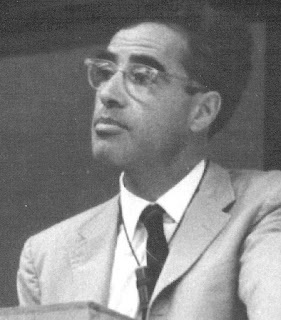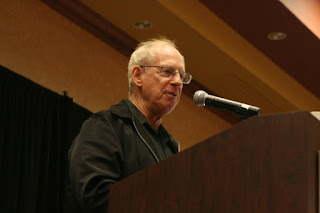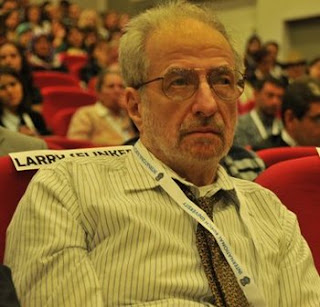Leonard Bloomfield is a 20th century American linguist and professor of Germanic languages.
Profile
- Birth Name: Leonard Bloomfield
- Date of Birth: April 1, 1887
- Place of Birth: Chicago, Illinois, USA
- Date of Death: April 18, 1949
- Place of Death: New Haven, Connecticut, USA
- Cause of Death: Illness caused by a stroke
- Zodiac Sign: Aries
- Nationality: American
- Ethnicity: Jewish-Germanic
- Father: Sigmund Bloomfield
- Mother: Carola Buber Bloomfield
- Spouse: Alice Sayers
- Alma Mater: Harvard College, University of Wisconsin, University of Chicago, University of Leipzig, and University of Göttingen
- Leonard Bloomfield is known for: scientific systemization of linguistic study and presentation of rigorous model for linguistic description.
- Leonard Bloomfield is criticized for: his dismissal of serious study of meaning in linguistics.
- Leonard Bloomfield was influenced by: Eduard Prokosch, August Leskien, Karl Brugmann, Hermann Oldenberg, and John B. Watson
- Leonard Bloomfield influenced: Charles Hockett, and Zellig Harris
Quotes
“The totality of utterances that can be made in a speech community is the language of that speech community.” ― Leonard Bloomfield, An introduction to the study of language
Major Works
- Introduction to the Study of Language (1914)
- Tagalog Texts with Gramatical Analysis (1917)
- Menomini Texts (1928)
- Sacred stories of the Sweet Grass Cree (1930)
- Language (1933)
- The Stressed Vowels of American English (1935)
- Linguistic Aspects of Science (1939)
Did You Know?
- Bloomfield was born in a Jewish-Germanic family.
- When he was nine his family moved to the village of Elk-hart Lake, Wisconsin.
- In Wisconsin his father was the proprietor of a hotel.
- His uncle, Maurice Bloomfield, was professor of comparative philology and Sanskrit at Johns Hopkins University in Baltimore.
- Bloomfield studied at local school in the village of Elk-hart Lake, where he failed to get promotion to the next grade due to opposing the existing teaching method.
- After passing high-school entrance examination with the help of his mother’s tuition he returned to Chicago to attend the North Division School for his secondary studies.
- In 1903 he attended Harvard College and graduated three years later.
- He completed his post-graduate studies at University of Wisconsin (1906-1908) and University of Chicago (1908-1909) and obtained the doctorate degree in 1909.
- At University of Wisconsin he met Eduard Prokosch who inspired him to be a linguist.
- In 1909 he started as Assistant professor of German at University of Cincinnati.
- In 1910, he joined as an associate professor of German and comparative philology at University of Illinois.
- In 1921 Bloomfield worked as Professor at Ohio State University.
- In 1927 Bloomfield moved to University of Chicago, where he worked as a professor of German Philology till 1940.
- He became president of the LSA in 1935.
- In 1940 he became Edward Sapir’s successor at Yale University in New Haven, Connecticut, as the Sterling Professor of Linguistics.
- In 1914 he published his first book entitled Introduction to the Study of Language which was published by the Publisher Henry Holt in New York.
- His 1933 book Language paved the way for creating the field of linguistics as a branch of science.
- Bloomfield was one of the main figures behind the American structural approach to linguistics.
- Bloomfield thought of language in strict scientific terms rather than in any philosophical way.
- Although Bloomfield’s earlier works reflects his interest in the psychological theories of Wilhelm Wundt, his later philosophical position was less dogmatic, and he showed much interest in behaviourism as posited by A.P. Weiss.
- Many critics consider him as anti-mentalist.
- The influence of Bloomfieldian structural linguistics declined in the late 1950s and 1960s after development of generative grammar by Noam Chomsky.
- Much of his works were published posthumously.
- Leonard Bloomfield died at the age of 62, after suffering nearly three years of a paralyzing stroke.


























